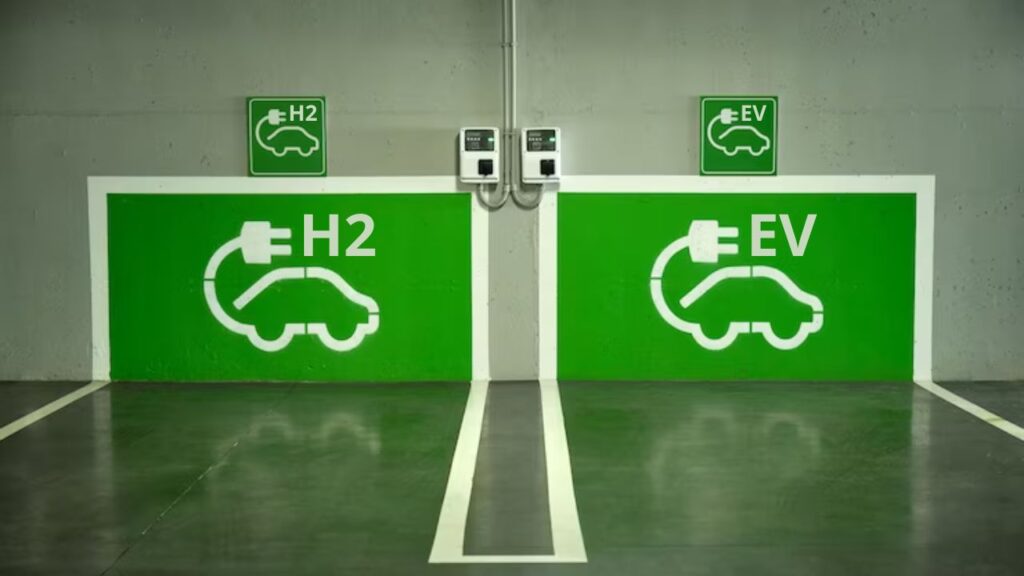As the world continues to seek cleaner and sustainable energy solutions, the automobile industry has been at the forefront of this movement. With the rise of electric cars, many have hailed it as the future of transportation, but there is another contender in the race for clean energy: hydrogen cars.
Ahead, we’ll do a comparative analysis of hydrogen vs electric cars, examining their advantages and disadvantages. Keep reading to learn more!
Advantages of Hydrogen and Electric Cars
Let’s start with the pros of hydrogen vs electric cars!
Pros of Hydrogen Cars
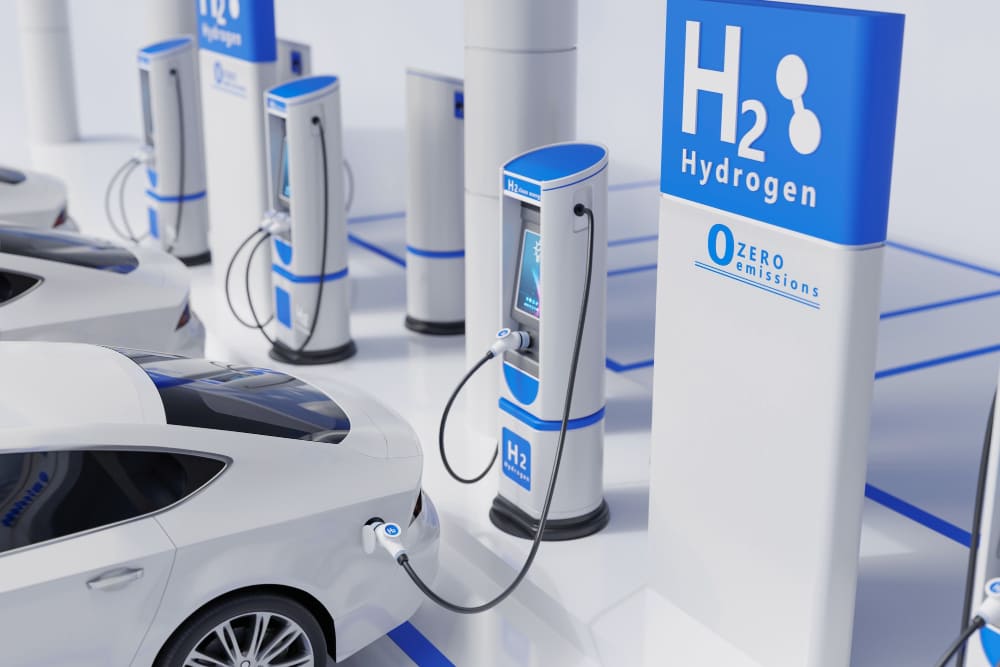
The only emissions are water
Unlike traditional combustion engines, hydrogen fuel cells produce electricity by combining oxygen and hydrogen in a chemical reaction, producing water and heat as by-products.
In other words, the only emissions produced by hydrogen cars are harmless water vapor and heat, making it an ideal option for people concerned about minimizing their carbon footprint.
This lack of harmful emissions reduces air pollution and contributes to reducing transportation’s overall impact on climate change.
Filling up is a familiar process
Unlike electric cars that require specialized charging stations that may not be readily available, hydrogen cars can be refueled at hydrogen fueling stations, which are becoming increasingly common in many regions worldwide.
Similar to gasoline refueling, hydrogen cars can be fueled up in just a few minutes, offering the convenience of a quick and hassle-free refueling experience.
This familiarity and ease of use make hydrogen cars attractive for those looking for a sustainable yet practical transportation option.
Renewable and Readily Available
We can produce hydrogen from renewable sources, like wind, solar, and hydropower, making hydrogen cars an environmentally friendly option.
Additionally, hydrogen is abundant in the Earth’s atmosphere and can be extracted from water using electrolysis. This means it is readily available and can be easily produced sustainably.
This reduces our dependence on non-renewable resources and contributes to a more sustainable future.
Using hydrogen as a car fuel source, we can significantly reduce carbon emissions and combat climate change.
Highly Efficient than Other Energy Sources
Hydrogen fuel cells have several advantages over traditional energy sources, including higher energy density, zero emissions production, and renewable energy sourcing.
Additionally, refueling a hydrogen car takes only a few minutes, similar to filling up a gasoline car.
Hydrogen cars offer a promising alternative for eco-conscious consumers looking for an efficient and sustainable way to get around by utilizing clean energy sources and providing quick refueling times.
Almost Zero Emissions
Hydrogen cars are a cleaner and more sustainable mode of transportation, producing almost zero emissions that can harm the environment and human health.
Thanks to fuel cells that generate electricity through an electrochemical reaction, only water vapor is released as exhaust emission, making hydrogen cars a cleaner alternative to gasoline-powered vehicles.
This eco-friendly solution can also help reduce our dependence on fossil fuels, as hydrogen can be produced using renewable sources such as solar and wind power.
Pros of Electric Cars
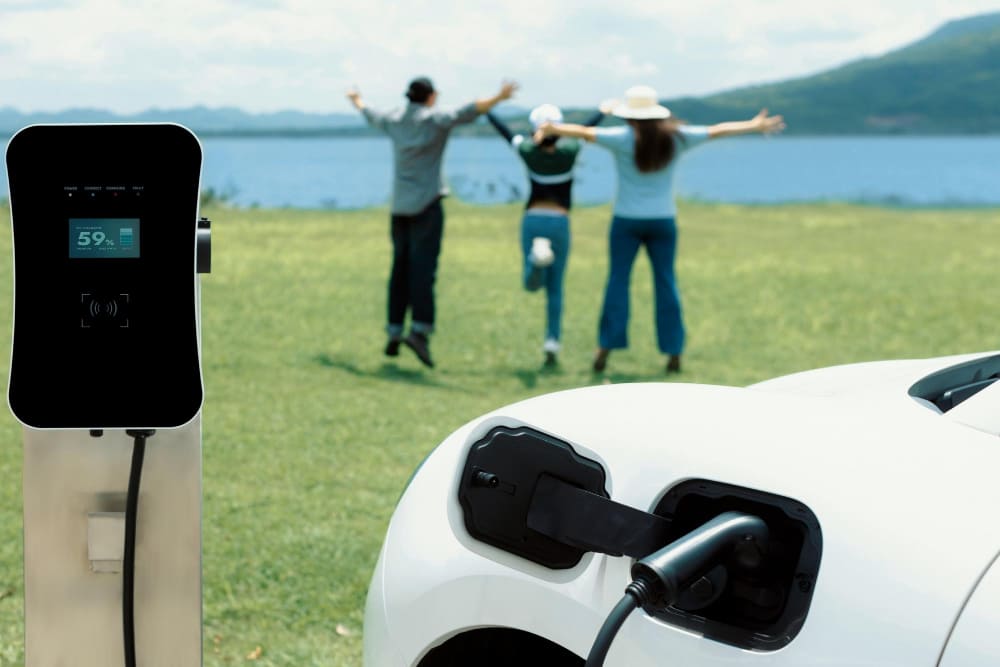
Power is cheap relative to petrol and diesel
There are several benefits of EVs over traditional petrol and diesel vehicles, one of which is the lower cost of power. With electricity being cheaper per mile driven, electric car owners can save thousands over the vehicle’s life.
Government tax incentives can also offset the higher upfront cost of purchasing an electric car.
Additionally, electric cars require fewer repairs and maintenance due to having fewer moving parts than traditional cars.
The added convenience of home charging also eliminates the need for petrol stations, saving time and money.
They’re easier on the environment
The lower emissions of greenhouse gases from electric cars compared to petrol or diesel vehicles help reduce air pollution and combat climate change.
As renewable energy sources continue to power more of the grid, the environmental benefits of electric cars only increase. With greater energy efficiency, electric cars require less energy to travel a similar distance, resulting in fewer carbon emissions.
Moreover, many electric cars use regenerative braking systems that capture energy that would otherwise be wasted, contributing to a cleaner environment.
Maintenance is less frequent and less expensive
The absence of a traditional combustion engine means there are far fewer moving parts to worry about, resulting in lower wear and tear and fewer opportunities for things to go wrong.
This translates to less frequent and less expensive maintenance requirements than traditional gas-powered vehicles.
Additionally, electric cars often have regenerative braking systems that can help extend the brake pads’ life by using the car’s momentum to slow down.
Over time, regarding the overall cost of ownership, these maintenance savings can make a big difference.
You’ll get tax credits
Many governments worldwide provide incentives for consumers who purchase electric vehicles, ranging from direct cash rebates to tax credits, that can significantly reduce the overall cost of ownership.
These incentives are designed to encourage more people to switch to electric cars, which can help lower the emissions of greenhouse gas while improving air quality.
For example, federal tax credits of up to $7,500 in the United States are available for qualifying electric cars, depending on the make and model. As more countries adopt similar policies, the financial benefits of electric cars will only continue to grow.
They’re very quiet
Another unique advantage of EVs is their quiet operation. Unlike traditional gas-powered vehicles, which produce significant noise from their engines and exhaust systems, electric cars are virtually silent.
This can be beneficial in several ways, from reducing noise pollution in urban areas to providing passengers with a more peaceful driving experience.
For example, electric cars are often used for chauffeur services due to their quiet operation, allowing passengers to work, relax, or even take a nap.
Disadvantages of Hydrogen and Electric Cars
Despite the promising pros of hydrogen vs electric cars, both vehicles have several drawbacks. Check them out for further consideration.
Cons of Hydrogen Cars
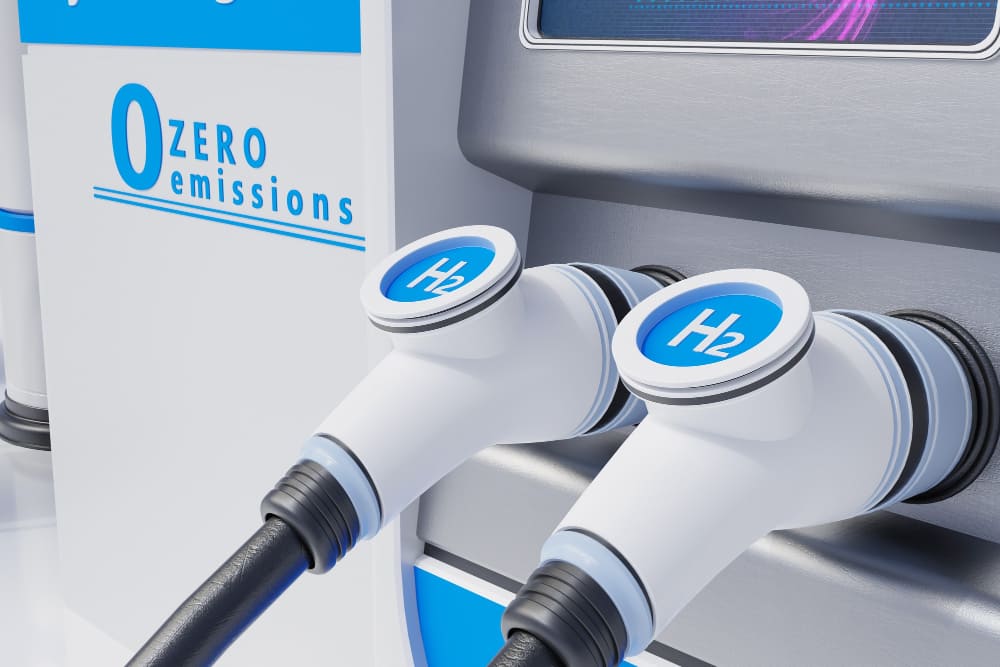
Cost of Raw Materials
The production process of hydrogen fuel cells requires expensive materials such as platinum and palladium, which drive up the overall cost of the vehicle. This high cost can make hydrogen cars less accessible to the average consumer.
However, technological advancements and increased demand could potentially lower the cost of these materials over time.
Regulatory Issues
Due to the volatile nature of hydrogen, strict regulations must be implemented so that the handling and transportation of the fuel is safe. This can result in additional costs for manufacturers and may slow down the industry’s growth.
Furthermore, there are currently limited hydrogen fueling stations available, which can make it difficult for drivers to refuel their vehicles.
Hydrogen Extraction
While hydrogen is the most ample element in the universe, it is typically bonded with other elements and must be extracted through various processes such as steam methane reforming or electrolysis.
These methods can be costly and energy-intensive, which could limit the scalability of hydrogen fuel cell technology.
However, research is being done to develop more efficient and sustainable methods for hydrogen extraction, which could help to overcome these challenges.
Cons of Electric Cars
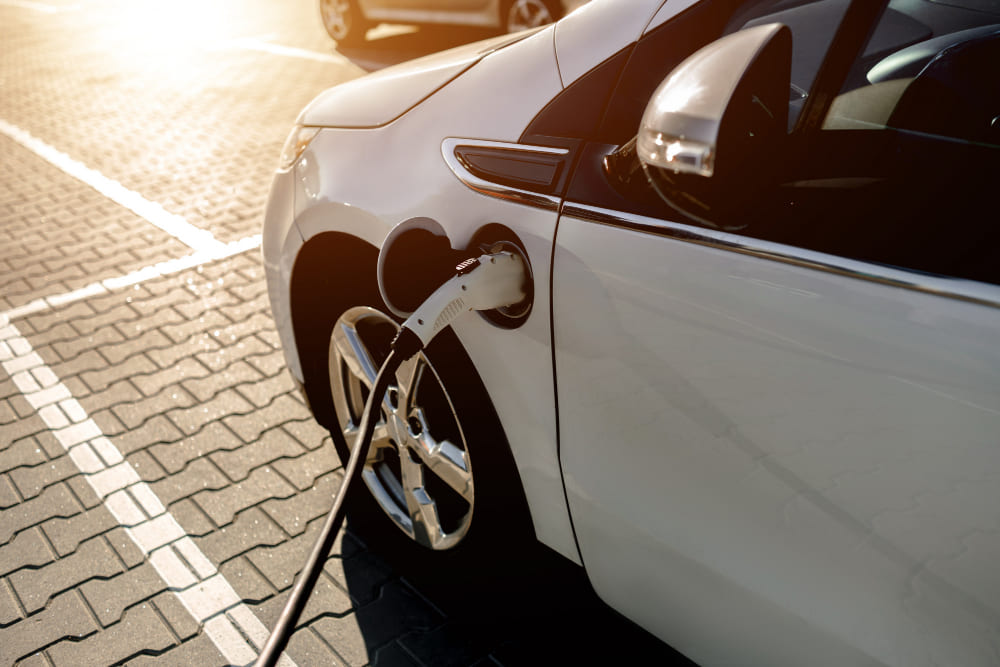
Recharging can take a while
One of the biggest cons is the time it takes to recharge the vehicle’s battery. Unlike filling up a gas tank, recharging an EV can take several hours up to overnight.
However, businesses can see this unique aspect of electric cars as an opportunity to provide convenient and efficient charging options.
There are fewer choices
Although the market for EVs is expanding, it still lags behind the variety of traditional internal combustion engine vehicles. This can restrict buyers’ options in terms of vehicle types, brands, and models.
However, as EV technology advances and demand grows, manufacturers are expected to introduce more diverse options, providing consumers with a wider range of electric cars.
Charging station availability is inconsistent
While the electric vehicle charging infrastructure is expanding, it is not yet as widespread or convenient as traditional fuel stations. This can lead to concerns about range anxiety and limited access to EV charging stations, particularly in remote areas.
However, as governments and private companies invest in charging infrastructure development, the availability and accessibility of charging stations are expected to improve, alleviating this challenge and supporting the widespread adoption of electric vehicles.
Frequently Asked Questions
Will hydrogen cars replace electric cars?
Hydrogen cars are unlikely to replace electric cars. While hydrogen cars may find niche applications, the widespread adoption and dominance of electric cars are more probable.
Are hydrogen cars better than electric cars for the environment?
Both hydrogen vs electric cars have their environmental advantages, but electric cars are generally considered better for the environment.
Why are hydrogen cars not sustainable?
Hydrogen-powered cars are considered less sustainable due to reliance on fossil fuels for production, energy-intensive processes, and limited infrastructure. Electric cars have significantly advanced in renewable energy integration and infrastructure development, making them a more sustainable choice.
Conclusion
In conclusion, while electric and hydrogen-powered vehicles have their merits, it is evident that they are currently leading the way toward a sustainable automotive future.
Electric cars have a significant advantage in infrastructure development, renewable energy integration, and reducing greenhouse gas emissions.
However, it is essential to continue researching and developing hydrogen vs electric cars technology to overcome their challenges and explore potential niche applications.
Ultimately, the transition to electric vehicles remains the most viable and promising solution for powering the future.
If you’re in to help create a more sustainable planet for generations to come, consider switching to used electric vehicles to start. Visit Kilowatt Cars to get the best selections of second hand electric vehicle for sale in Victoria or second-hand electric vehicles for sale in Baranduda.

